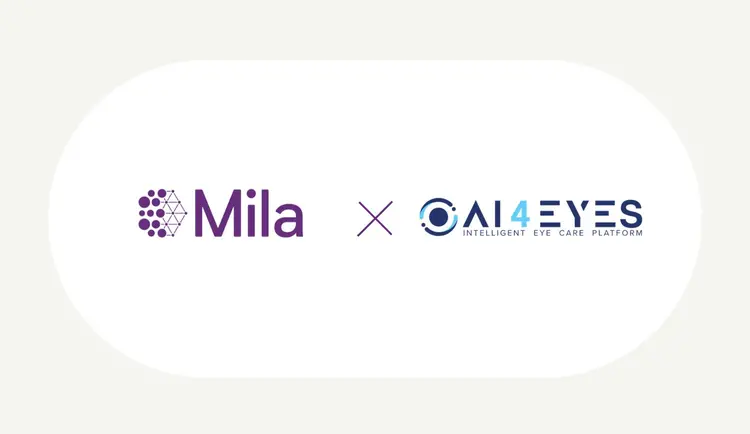
What are artificial intelligence technologies used for? Do they inspire your confidence or distrust? Are they used ethically or not? These are some of the questions that will be brought to the attention of all Canadians in relation to specific themes during the Open Dialogue workshops organized by the Public Awareness Working Group of the Government of Canada's Advisory Council on Artificial Intelligence, in partnership with CIFAR and the Algora Lab of the Université de Montréal. But what will the data collected during these discussions be used for? Marc-Antoine Dilhac, co-chair of the Working Group, Professor of Ethics and Political Philosophy at UdeM, and Mila member, provides an overview:
Why ask the public what they think about AI now?
Because we are only the beginning of a digital, automation and AI revolution that is transforming several jobs and social relationships, for instance, between patients and their doctors or students and their teachers. These changes, which are already affecting many people, lead us to ask ourselves how to ensure that these technologies are accessible and beneficial to all. In order to best organize the transformations brought about by AI—which are permanent in some fields, such as medicine—it is important to establish an open dialogue with the public. It is up to each individual to say whether this type of application will change his or her life for the better or, conversely, impose new constraints.
And so, the democratic idea of surveying the population was born…
Absolutely. Our working group is primarily focused on digital literacy and how to increase the public's knowledge of AI. The first phase involved conducting a consultation by survey to gain insight into the social perception of AI. In this second phase, our aim is to discover how the Canadian population perceives value conflicts, for example between security and privacy, health and data anonymization. These societal, ethical and political issues will be discussed in the Open Dialogue citizen workshops that seek to better understand public perceptions and expectations of AI. In some ways, UdeM paved the way for these inclusive discussions with the Montreal Declaration for a Responsible Development of Artificial Intelligence which was initiated in 2017.
How will these workshops be structured and what will be discussed?
Each "event" conducted across the country will be held on Zoom, with a maximum of 100 people, so register today as space is limited! Participants will first receive a deliberation guide and a program schedule to help them prepare for the discussions. Over the course of the 2.5-hour workshop, participants will be divided into Zoom breakout rooms in groups of 8 to 10 people to critically reflect on, and discuss, societal issues from a use case that could be related to health, transportation, education, insurance, etc. They will then be asked to formulate concrete responses with recommendations for mediating value conflicts. Specific workshops will be dedicated to Indigenous people with respect to deliberative practices unique to their culture, as well as to youth aged 13 to 17. Our goal is to have over 1000 people in Canada participate in these exchanges.
Finally, what will you do with all this data?
The feedback collected from these workshops will inform recommendations for the Government of Canada so that it can adjust its AI outreach strategy and "map" the factors that would make one application likely to be accepted, and another likely to be rejected. The extent of AI’s deployment depends on the public’s acceptance and trust in these technologies.
Register to take part in the Open Dialogue workshops.
Click here to consult the Public Awareness Working Group’s report, which will be made publicly available in summer 2021 (link to come).
Source: https://nouvelles.umontreal.ca/en/article/2021/03/19/the-dialogue-on-ai-is-open/





